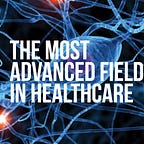Personalizing Brain Stimulation & Speeding Stroke Recovery
AABM News Roundup: October 2021
NYT explores the first instance of personalized deep brain stimulation — with stimulation delivered in response to specific electrical patterns in the brain:
“Twelve days after Sarah’s device was fully operational in August 2020, her score on a standard depression scale dropped to 14 from 33, and several months later, it fell below 10, essentially signaling remission, the researchers reported. ‘The device has kept my depression at bay, allowing me to return to my best self and rebuild a life worth living,’ Sarah said. Sarah’s is the first documented case of personalizing a technique called deep brain stimulation to successfully treat depression.”
Read the full article: “A ‘Pacemaker for the Brain’: No Treatment Helped Her Depression — Until This”
WIRED examines research in The Lancet on how vagus nerve stimulation can speed post-stroke recovery — and the potential implications for anyone to acquire any kind of physical skill:
“But this stroke study revealed that neuromodulation plus task-specific practice enhances Hebbian learning — or activity-dependent synaptic plasticity, with all your muscles firing in sequence. Generally, to acquire a skill, the brain’s neurons need to fire in the right way at the right time; practice is the usual human course, but now, stimulation lets us do it faster, and better, too.”
Read the full article: “A Stroke Study Reveals the Future of Human Augmentation”
Corporate News
FDA Clears Prelivia, a Medical Device that Protects Patients from Pressure Injuries at Hospitals and Care Homes. PR Newswire, September 1, 2021.
· The FDA approved Rehabtronics’ neurostimulation device Prelivia for bedridden or chair-bound patients.
· Prelivia uses neurostimulation to activate muscle contraction and stimulate blood flow to maintain healthy tissue and blood pressure in inactive patients.
Italian start-up to launch technology that records the brain’s activity. Innovation Origins, September 9, 2021.
· Italian start-up Corticale is getting ready to launch a new technology, called SiNAPS, that can record brain activity.
· The creators made this product with a goal of understanding differences in brain activity under normal conditions and while impacted by various diseases to inform treatment mechanisms.
New Frontiers
Electronic Neural Bypass Reestablishes Sense of Touch in Paralyzed Patients. Medical Device and Diagnostic Industry, September 8, 2021.
· A Feinstein Institutes research team, led by Chad Bouton, found that a tiny brain implant could be used to restore muscular control and feeling to the limbs of paralysis patients.
· The implant essentially bypasses a patient’s injury by routing brain activity through a computer rather than the spinal cord.
Magnetic brain stimulation may enhance memory. Medical News Today, September 28, 2021.
· University of Glasgow researchers have discovered that administering repetitive transcranial magnetic stimulation (rTMS) over the dorsolateral prefrontal cortex (DLPFC) may improve memory.
· Throughout two trials, two groups of volunteers were able to recall lists of words while receiving stimulation of the DLPFC more accurately.
· The researchers are hopeful that in the future, this method may benefit Alzheimer’s patients in their ability to form memories.
